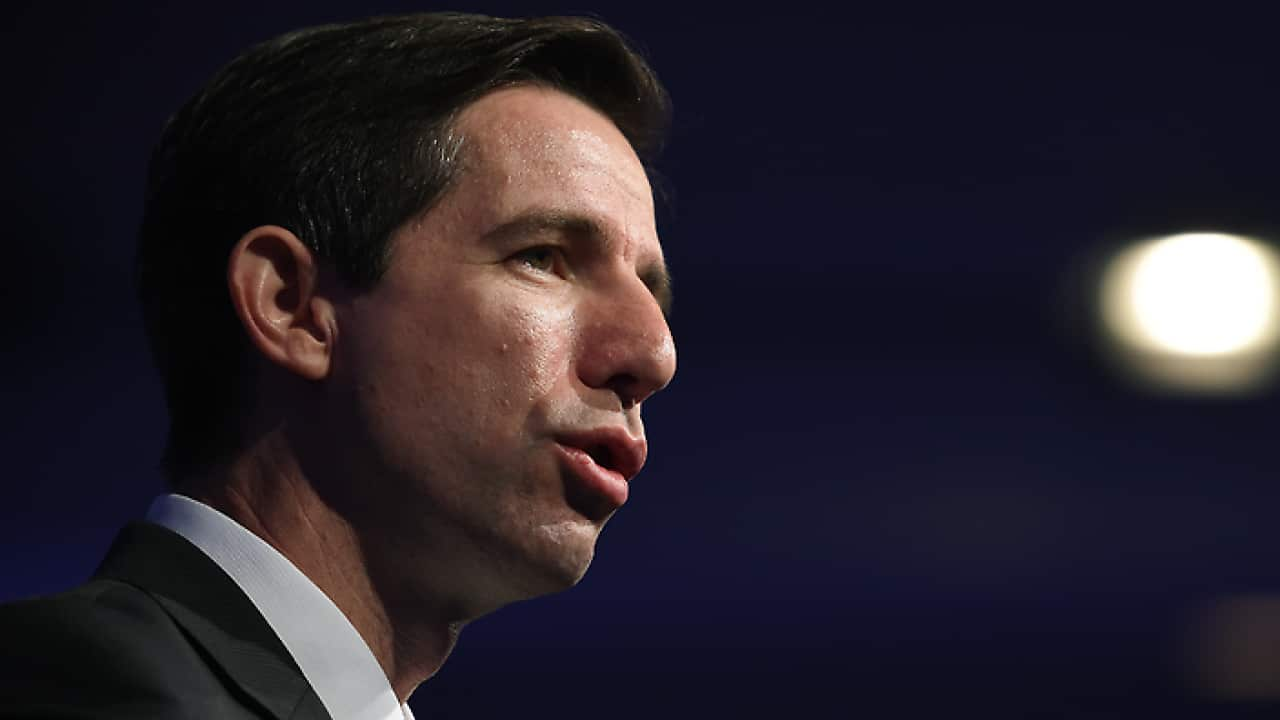Simon Birmingham unveiled the government's revamped university package in Canberra on Monday night.
It includes a $2.8 billion cut to universities and students paying more for degrees under the Turnbull government's overhaul of funding arrangements.
As well, part of future university funding will be linked to performance measures such as more transparent admissions processes and better student retention and success.
Senator Birmingham says the cut, which will be imposed via a two-year efficiency dividend on teaching funding only, represents less than four per cent of total university revenue.
Under the planned changes, students studying a four-year bachelor degree will pay between $2000 and $3600 more over the duration, and all can be deferred on the income-contingent HECS-HELP loan scheme.
At the maximum, this represents a $17 a week fee increase across a four-year degree, Senator Birmingham says.
Once students start earning, the repayment threshold for their loans will kick in at $42,000 from mid-2018 - a substantial drop from the current $55,000 threshold.
Senator Birmingham characterised it as "recalibrating what is one of the world's most generous student loan systems".
And student fees will be at most $75,000 - for the priciest six-year medical degrees.
The May 9 budget will hold a range of other changes, including allowing universities to enrol as many students as they want in sub-bachelor courses and get government funding, provided those students haven't completed a higher education qualification before.
The government will also set up a new $37 million-a-year fund offering students postgraduate scholarships at any institution they choose.
Senator Birmingham said the government wanted its changes to boost quality, enhance choice, drive innovation and improve equity of access while delivering financial sustainability.
"Students are the reason we have universities. Students are the reason we fund universities," he said.
